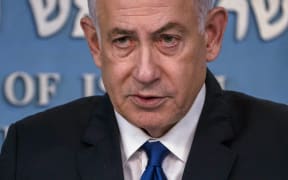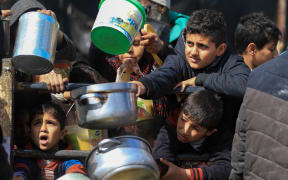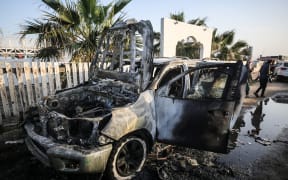By Hugo Bachega in Jerusalem, and Sean Seddon, in London
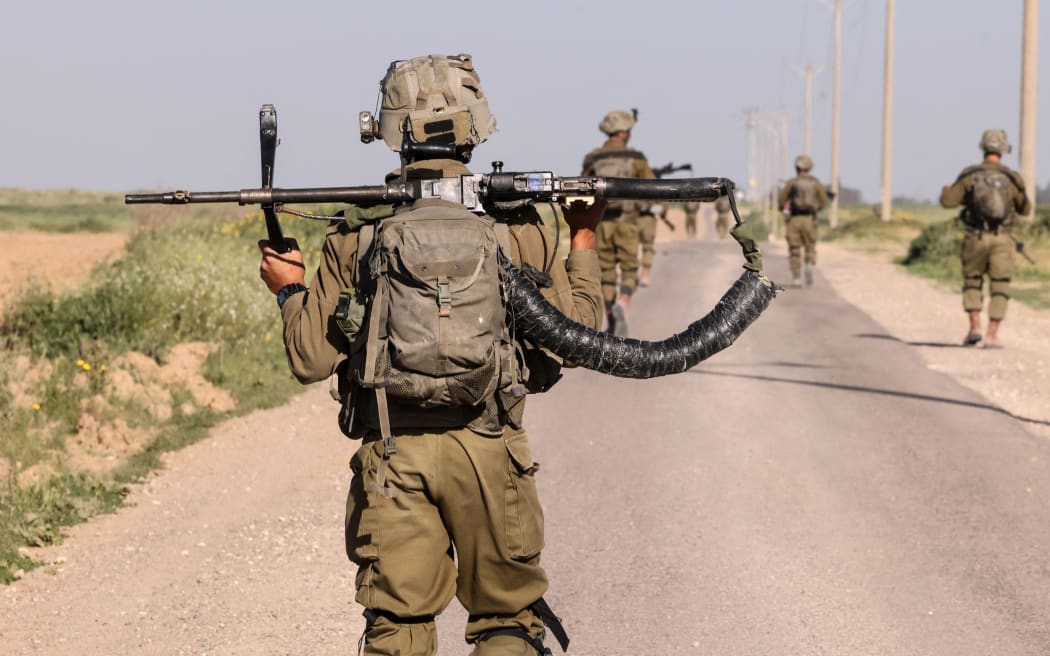
Israeli soldiers walk near the border with Gaza Strip in southern Israel on March 12, 2024, amid the ongoing battles between Israel and the Palestinian militant group Hamas. Photo: AFP / Menahem Kahana
Iran has vowed to respond after a strike on its consulate building in Syria on Monday - which Israel was widely believed to be behind - killed 13 people, including a senior general.
The Israel Defence Forces (IDF) also announced it was halting all leave for soldiers serving with combat units.
It comes a day after reservists were called up to bolster air defence units.
Israeli authorities seem to believe an Iranian response is imminent and could come as soon as Friday, which is Quds Day - or Jerusalem Day - the last Friday in the Muslim holy month of Ramadan.
It is a day which has frequently been used to stage pro-Palestinian and anti-Israel rallies, particularly in Iran.
On Thursday, GPS systems were being disrupted in central parts of Israel, a defensive measure designed to interfere with weapons which rely on it to set their location.
Israeli citizens reported being unable to use location-based app services in major cities like Tel Aviv and Jerusalem far from active combat zones.
Monitoring website GPSJAM showed widespread interference with location signals across Israel.
A BBC producer said her GPS had located her in Cairo when she was in Jerusalem, and other users have shared similar accounts on social media.
IDF spokesman Rear Adm Daniel Hagari confirmed the country is using GPS blocking - which is sometimes referred to as "spoofing".
Israelis have been urged to manually set their location on the app which issues alerts about incoming rocket attacks to ensure it remains accurate amid the GPS interference, the Times of Israel reported.
GPS is already disrupted in northern Israel, near the border with Lebanon, where Israel and the Iranian-backed group Hezbollah have exchanged fire almost daily for the last six months.
Separately, the IDF has urged people not to panic buy. Writing on X, formerly Twitter, Rear Admiral Hagari said: "There is no need to buy generators, store food and withdraw money from ATMs.
"As we have done until today, we will immediately update any change if it is in an official and orderly manner."
Media outlets in Israel reported some of the country's embassies had been placed on alert or evacuated over potential Iranian attacks. The BBC has not independently verified those reports and Israel has not confirmed them.
Israel has not commented on the targeting of a building on Iran's diplomatic compound in Damascus, the capital of Syria, but has been blamed by the country's leader Ayatollah Ali Khamenei.
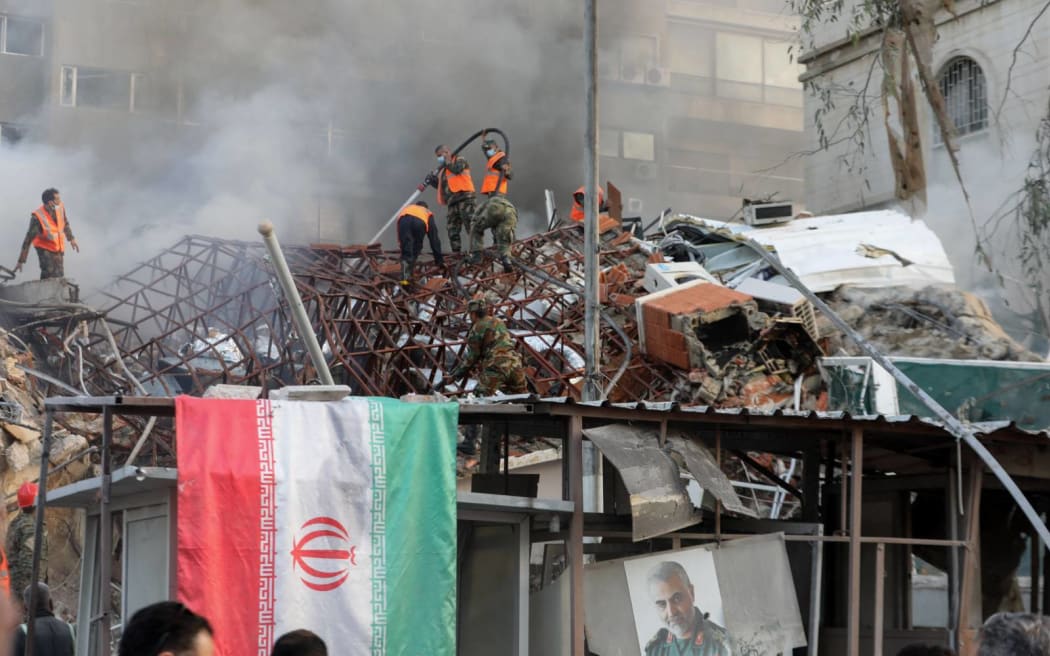
Emergency and security personnel extinguish a fire at the site of strikes which hit a building annexed to the Iranian embassy in Syria's capital Damascus, on 1 April, 2024. Photo: LOUAI BESHARA / AFP
Iran's President Ebrahim Raisi previously said the strike would "not go unanswered", though it is unclear what actions Iran could take in response.
Among the 13 people killed in the strike were seven officers in Iran's Revolutionary Guards, including senior general Mohammad Reza Zahedi and his deputy.
Zahedi is one of the most high-profile Iranian figures believed to have been killed by Israel in the country's long campaign of targeted assassinations.
Israel has previously acknowledged carrying out strikes in Syria on targets it says are linked to Iran or its allied armed groups.
Speaking at a meeting of the security cabinet on Thursday, Prime Minister Benjamin Netanyahu said Israel is "acting against Iran and its proxies, defensively and offensively".
He continued: "We will know how to defend ourselves and we will act according to the simple principle of whoever harms us or plans to harm us, we will harm them."
Meanwhile, Israel continued to come under international pressure over the killing of seven aid workers operating in Gaza on Monday.
The founder of the group whose workers were killed in apparent drone strikes said they had been targeted "systematically, car by car".
The deaths have prompted other aid groups to stop deliveries into northern Gaza over fears for the safety of their staff.
IDF Chief of General Staff Herzi Halevi apologised and said the incident happened because of misidentification, calling it a "grave mistake".
US President Joe Biden told Netanyahu the killing of the aid workers and overall humanitarian situation in Gaza were "unacceptable".
Biden urged the prime minister to agree to an immediate ceasefire and "made clear the need for Israel to announce and implement a series of specific, concrete, and measurable steps to address civilian harm, humanitarian suffering, and the safety of aid workers", adding that "US policy with respect to Gaza will be determined by our assessment of Israel's immediate action on these steps".
- This story was first published by the BBC.

